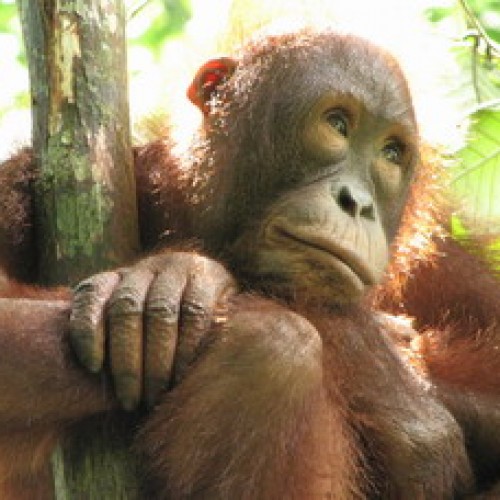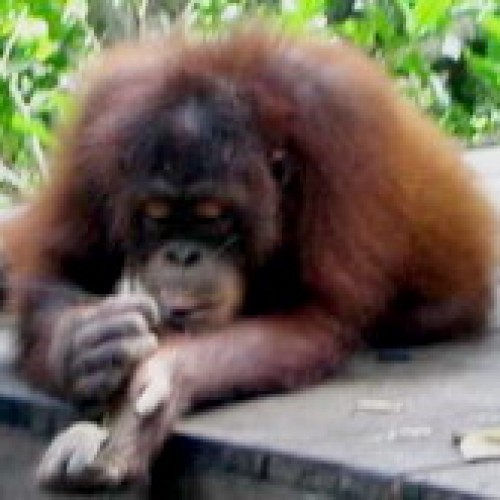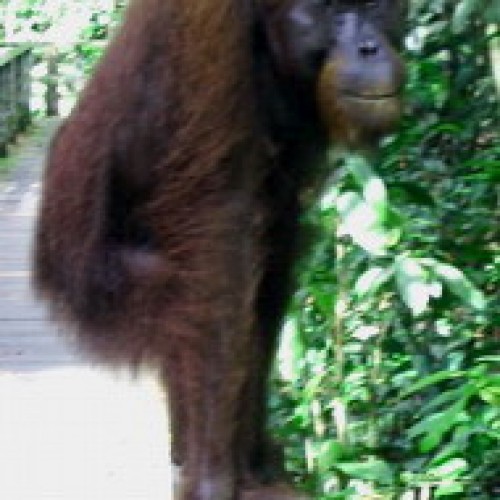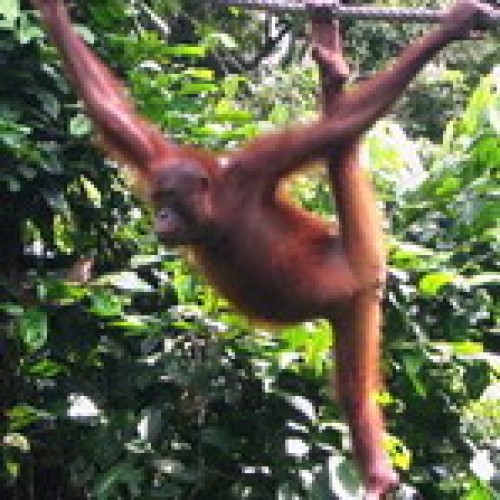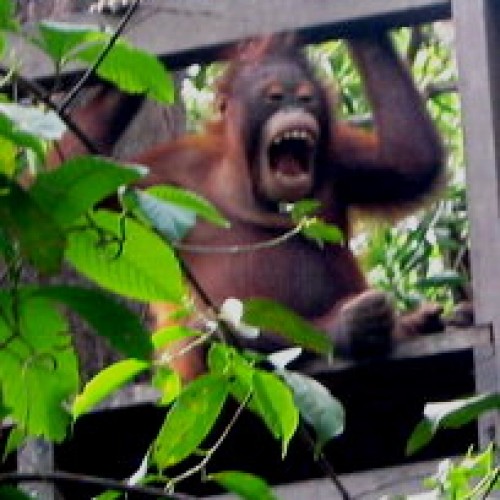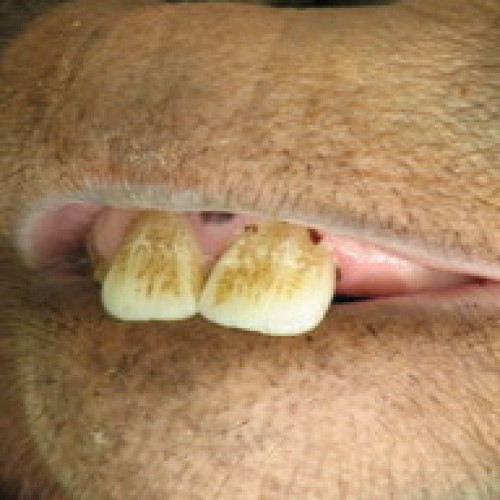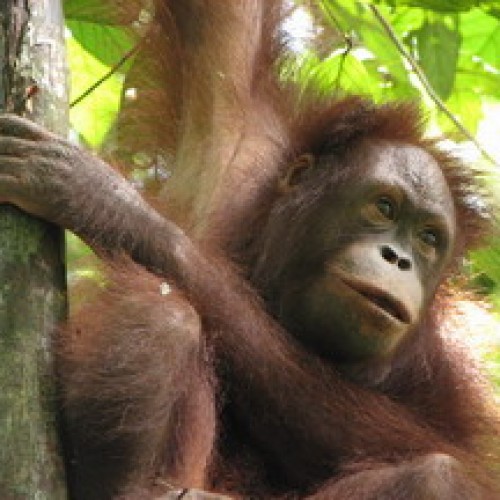Orang Utan
Orangutan-The Treasure of Borneo
Orangutans are only endemic to the islands of Borneo and Sumatra. This animal have been recorded to be found to a high altitude of about 2400m (from Mt. Kinabalu). It is a large primate, the adult male (above 15 years) stands about 1.4 metre tall, weighing up to 50 – 100 kg. Females may weigh between 34 – 40 kg.
Orang utans make nests in the trees out of twigs, leaves and small branches in which they sleep in at night. Usually they make a new nest every afternoon, sometimes resting during the day. Orangutans are solitary animal and their main diet consists of fruits, leaves, barks, shoots and birds’ egg. Occasionally, they would come down to the ground to look for insects and termites. Orangutans are believed to live between 35 to 40 years or more and during her life span and adult female may give birth to 3 or 4 young with an average of one infant in every 4 years. Gestation period is about 9 months.
The young are slow growing and takes about 5 – 7 years before they become entirely independent and at least 7 -10 years before they are sexually matured.
The Orangutan is one of the world’s endangered species. In Sabah, the widespread destruction of its habitat is the principle cause of its declining population. For its survival, the Orangutan appears dependent on primary forest and much of this rich forest have been exploited for plantation areas. As a result, the Orangutan have been driven from their natural habitat and forced into areas, such as mountainous regions, that do not contain sufficient food. The slow and normally rather ponderous movements of the Orangutans also put them at a disadvantage on the ground as they are an easy target to hunters.
The Orangutan is a remarkably quiet and inoffensive creature and is one of the protected primates in Sabah. At present, the Sabah Wildlife Department has taken steps to translocation Orangutans from logging camps and estates to other wildlife sanctuaries throughout the state.
Source : Wildlife of Sabah In Danger, Sepilok Orang Utan Rehabilitation Centre, Sabah Wildlife Department, 1993

